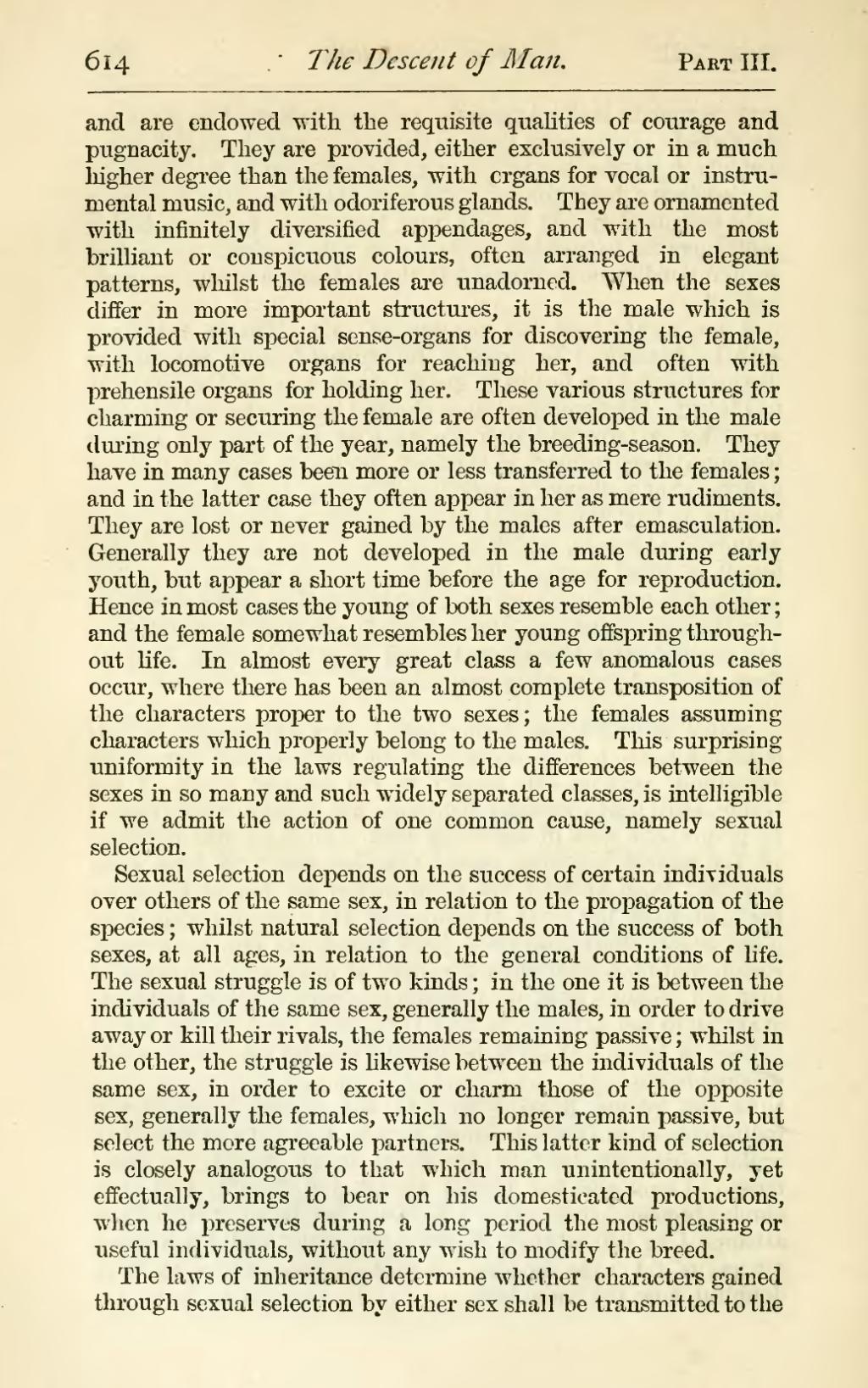and are endowed with the requisite qualities of courage and pugnacity. They are provided, either exclusively or in a much higher degree than the females, with organs for vocal or instrumental music, and with odoriferous glands. They are ornamented with infinitely diversified appendages, and with the most brilliant or conspicuous colours, often arranged in elegant patterns, whilst the females are unadorned. When the sexes differ in more important structures, it is the male which is provided with special sense-organs for discovering the female, with locomotive organs for reaching her, and often with prehensile organs for holding her. These various structures for charming or securing the female are often developed in the male during only part of the year, namely the breeding-season. They have in many cases been more or less transferred to the females; and in the latter case they often appear in her as mere rudiments. They are lost or never gained by the males after emasculation. Generally they are not developed in the male during early youth, but appear a short time before the age for reproduction. Hence in most cases the young of both sexes resemble each other; and the female somewhat resembles her young offspring throughout life. In almost every great class a few anomalous cases occur, where there has been an almost complete transposition of the characters proper to the two sexes; the females assuming characters which properly belong to the males. This surprising uniformity in the laws regulating the differences between the sexes in so many and such widely separated classes, is intelligible if we admit the action of one common cause, namely sexual selection.
Sexual selection depends on the success of certain individuals over others of the same sex, in relation to the propagation of the species; whilst natural selection depends on the success of both sexes, at all ages, in relation to the general conditions of life. The sexual struggle is of two kinds; in the one it is between the individuals of the same sex, generally the males, in order to drive away or kill their rivals, the females remaining passive; whilst in the other, the struggle is likewise between the individuals of the same sex, in order to excite or charm those of the opposite sex, generally the females, which no longer remain passive, but select the more agreeable partners. This latter kind of selection is closely analogous to that which man unintentionally, yet effectually, brings to bear on his domesticated productions, when he preserves during a long period the most pleasing or useful individuals, without any wish to modify the breed.
The laws of inheritance determine whether characters gained through sexual selection by either sex shall be transmitted to the
